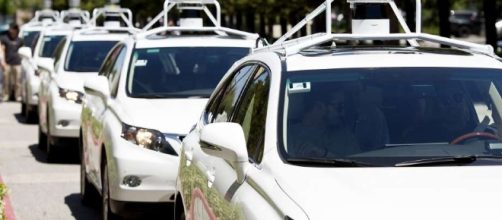According to Bloomberg, one of the chief impediments to a future where people are tooling about in driverless cars is the fear many people have of not being in control. It turns out that having one's hands on the wheel and foot on the accelerator and brake pedal is comforting. The fear of not being in control is entirely irrational. One is more likely to be hurt or killed in a car with a human behind the wheel than in one with a computer doing the driving.
Three-quarters of Americans are afraid to get into an autonomous car
The American Automobile Association notes in a survey that three-quarters of Americans report that they are afraid to ride in a Driverless Car.
Broken down by generation in a J.D. Power survey, baby boomers are the most worried approaching 50 percent. The younger one is, the less afraid of an autonomous car one tends to be. However, the numbers of people who report that they will definitely not want to ride in a car without someone behind the wheel is growing as the technology draws nearer.
One major reason for fear of riding in driverless cars stems from the experience that most people have had with their electronic devices. When a computer or a smartphone crashes, the consequences usually consist of inconvenience and maybe a bit of money. When a computer driving an autonomous vehicle crashes, the results could be catastrophic.
How can people get over their fears?
Manufacturers of driverless cars suggest that people might be more accepting of riding in such vehicles if they get to experience test rides in them. Probably autonomous vehicles will gain more acceptance once more people see that they are inherently safer than cars and trucks with fallible people behind the wheel.
Indeed, when one thinks about it, a computer would be safer because it does not make human mistakes. A computer does not experience road rage or engages in distracted driving. Fail safe systems should be in place to ensure that any computer hick ups or, worse, hacking does not result in a crash of a more server sort.
Of course, nothing works quite like good old fashioned advertising to gain public acceptance for a new product.
One can just imagine some celebrity endorsements, say from famous NASCAR drivers, moving a lot of people from the be afraid column to the how did we ever survive without this column. If Madison Avenue cannot sell something so convenient as a driverless car, then things have gone downhill since the days of the fictional but iconic Don Draper.


